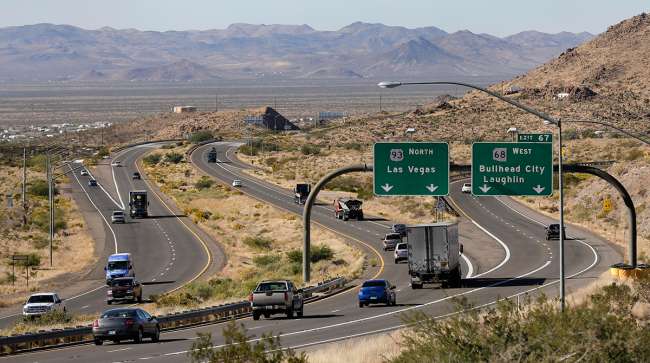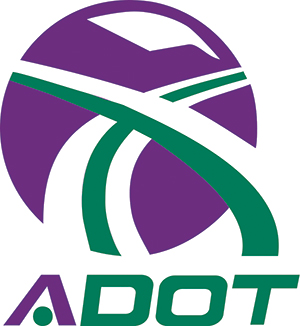Staff Reporter
Arizona Gov. Doug Ducey Signs Law for Fee to Stabilize Highway Patrol Funding

Arizona motorists probably will see an additional entry on their bill when registering their vehicles later this year.
Gov. Doug Ducey signed a law April 25 that would allow the director of the Arizona Department of Transportation to levy another fee on vehicles.
The governor’s action comes shortly after the state Senate passed the bill April 23. The legislation, which moved through the Senate under the title SB 1146, states that the registering officer “shall collect a highway safety fee” annually. Although the bill does not explicitly state how much this safety fee would be, it instructs where the money will go.

Worsley
“The highway safety fee shall fully fund the Department of Public Safety highway patrol budget for each fiscal year,” the text of the bill states. “Subject to legislative appropriation, monies in the Arizona highway patrol fund shall be used to administer the provisions of law relating to the highway patrol and the Arizona highway patrol reserve and all matters pertaining to those laws.”
Currently, the highway patrol uses money from the state’s General Fund and the Highway User Revenue Fund. The Highway User Revenue Fund, which is supported by fuel taxes, motor carrier taxes, vehicle license taxes and vehicle registration fees, finances highway construction projects.
ADOT spokesman Timothy Tait said the agency still is figuring out which motorists the fee will apply to but added it is likely trucks and passenger cars will be charged.
“If it’s on the road it’ll probably be assessed the fee, but we’re still figuring out exactly what that is,” Tait said.
Maureen Williams, who works as an assistant to state Sen. Bob Worsley (R-Mesa), the bill sponsor, said the fee set by ADOT’s director for vehicle registration does not have to go back through the Legislature to be effective.
“My understanding of the law is that it’s set annually by the director of the Department of Transportation,” Tait said. “There’s no annual process that requires the director of ADOT to get an approval of what that fee will be.”
The charge outlined in this bill does not change Arizona’s existing vehicle registration fees. According to Arizona DOT’s website, the total charge for registration fees is made up of a $1.50 air quality research fee, a $4 title fee, an $8 registration fee and a vehicle license tax.

For commercial vehicle registration, truck operators must declare a gross weight and then pay a corresponding fee. Gross weight is the sum of the empty weight of a motor vehicle combination plus the weight of the load to be carried on the motor vehicle combination at any point in time. For example, a truck with a gross weight between 32,001 and 36,000 pounds is charged a gross weight fee of $414.
Tait explained that the law will provide a sustainable source of funding for the highway patrol that does not rely on fund transfers or general fund dollars. It also will protect funding for road projects for jurisdictions around the state that would have been available through the Highway User Revenue Fund.
“There’s a lot of support for this initiative in the rural communities, especially, that have been hurting for road funds,” Tait said.
Arizona is not the only state grappling with transportation-related funding mechanisms. Rhode Island Gov. Gina Raimondo is leading a truck-tolling program to help finance the repair of the state’s dilapidated bridges. Connecticut Gov. Dannel Malloy released a revenue plan in late January that calls for a 7-cent increase of the gas tax that gradually will be phased in over the next four years and a $3-per-tire fee on tire purchases.
According to Tait, ADOT still needs to figure out the highway patrol budget and how many vehicles will be assessed for the fee before determining the amount of the fee itself.
Once the department has determined the fee, Tait said it will take about 3,000 hours of computer programming to accommodate this change in laws into ADOT’s system. He said ADOT likely will calculate the fee soon, but collection probably will not start until the fall.
“There’s a lot of questions here that are unanswered yet,” Tait said. “We’ve got to do the calculus to know where that number’s going to fall.”




